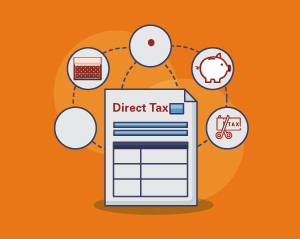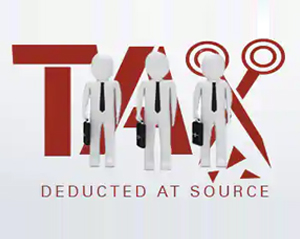There are different ways through which you can save tax. Some of them are:
1. Investment Options under Government Scheme:
Are you wondering how to save income tax on salary? Below are some investment options under government schemes:
Public Provident Fund (PPF)
- A government-sponsored retirement program
- It has a minimum deposit of ₹ 500 and allows a maximum deposit of ₹ 1.5 lakh per financial year
- It matures after 15 financial years and can be extended indefinitely in blocks of five years
- It is ideal for long-term retirement planning
- The interest earned from PPF is free from income tax under Section 10* of The Income Tax Act, 1961
National Savings Certificates (NSC)
- A savings scheme available at post offices
- It has a maturity period of five years
- It can be opened by an adult on behalf of a minor
- It is a fixed-income savings bond backed by the Government of India
- It is suited for small to middle-income groups
- It offers a deduction of up to ₹ 1.5 lakh under Section 80C* of The Income Tax Act, 1961
Sukanya Samriddhi
- A special savings scheme for parents of a girl child
- It matures when the girl child turns 21
- It can be opened until the girl child reaches age 10
- It allows withdrawal for higher education purposes
- It has a minimum investment of ₹ 250 and a maximum investment of ₹ 1.5 lakh per financial year
- It qualifies for a deduction under Section 80C* of the Income Tax Act, 1961
National Pension System (NPS)
- A retirement savings investment catering to employees across various sectors
- It offers a diversified investment approach, including allocation to equities
- It is governed by the Pension Fund Regulatory and Development Authority (PFRDA)
- It provides tax benefits under Section 80C* of The Income Tax Act, 1961
Equity Linked Savings Schemes (ELSS)
- Equity Linked Savings Scheme (ELSS) is a tax-saving mutual fund in India that offer the dual advantage of equity investments and deduction from your taxable income
- ELSS funds primarily invest in equities and equity-associated securities of companies and provide you with the potential for long-term capital appreciation along with tax* benefits
- These schemes typically come with a mandatory lock-in period of three years
- By investing in ELSS, you can claim deduction of up to ₹ 1.5 lakh under Section 80C* of The Income Tax Act, 1961.
Employees Provident Fund (EPF)
- The Employees Provident Fund (EPF) is a government-backed savings scheme that is managed by the Employees Provident Fund Organisation (EPFO).
- Under the EPF scheme, the employee and the employer both contribute 12% of the employees’ basic salary and Dearness Allowance (DA) towards the EPF.
- As of the latest update, the EPF offers an interest rate of 8.25% per annum on deposits, compounded annually. However, the interest rate is subject to change based on government regulations.
- The EPF is available to employees in both the public and private sectors.
- Employee contribution to the fund is eligible for deduction under section 80C.
- Employer contribution is also exempt from tax up to 12 percent of the basic salary plus dearness allowance.
Fixed Deposits (FD)
- A Fixed Deposit (FD) is a type of term deposit that provides a guaranteed return on your investment.
- The investment period for an FD can range from as short as 7 days to as long as 10 years.
- FDs can be opened with banks, post offices, or Non-Banking Financial Companies (NBFCs). The interest rates on FDs can vary depending on factors such as the depositor's age, the term of the deposit and the issuing institution.
- FDs can be a popular choice for conservative investors looking for fixed returns with minimal risk apetite.
- By investing in FD, you will get a maximum deduction of 1.5 lakhs per annum as per the section 80C* of the Income Tax Act, 1961.
2. By insuring your and yours loved one’s health:
Under Section 80D, premiums paid in any mode other than cash towards insuring the health of self, spouse, and dependent children are eligible for a deduction for up to `25,000 from your taxable income. Paying the premium on health policies of senior citizen parents makes you eligible for an additional deduction of `30,000 from your taxable income, thereby helping you save more tax. This limit includes the expenses of up to `5000 incurred on preventive health checkups.
3. By submitting rent receipts:
If you are staying in
- Actual HRA received from the employer
- The actual rent paid is more than of 10% of salary*
- 50% of the salary if you stay in a metro city and 40% of the salary if you stay in a non-metro city
* Salary= Basic Salary+ Dearness Allowance as per employment terms
However, under Section 80GG, if you do not receive HRA from your employer or do not own a residential house, you can get a
- `60,000 per annum(`5000 per month)
- Rent paid minus 10% of the total income
- 25% of total income for the year
4. By making a charitable donation:
A donation made towards certain relief funds and charitable organisations is eligible for deductions under Section 80G. However, any donation made in items such as food material, medicines, etc., are not eligible for deduction.
Mode of donations eligible for deductions under Section 80G
You can claim tax* deductions under Section 80G only if you have made a donation through a cheque, demand draft, or cash (No deductions allowed if donations exceeding ₹ 2,000 are made unless by a mode other than cash). Contributions in kind do not qualify for tax* deductions.
Who is eligible to pay?
All taxpayers - individuals, companies, or HUFs, are eligible to make charitable donations and claim tax* deductions under section 80G of the Income Tax Act, 1961
Important documents for claiming tax* deductions
Below are the documents you need to submit to claim tax* deductions under Section 80G:
- Identity proof of the donor
- PAN card of the donor
- Address proof of the donor
- Proof of the amount of donation
5. By financing higher education:
Under Section 80E, the interest paid on loan taken for higher education qualifies for a deduction from taxable income. The deduction is offered for a maximum of 8 years or till the time the interest is paid, whichever is earlier.
Who can claim this deduction?
Tax* deduction under Section 80E can be claimed by an individual for a higher education loan taken for self, spouse, children, or a student for whom he or she is a legal guardian.
Deduction amount
There is no limit to the maximum amount that can be claimed as tax* deduction under Section 80E. However, the deduction is available for a maximum of eight years or till the interest is paid on the loan, whichever is earlier.
6. By buying a house:
Under Section 24, you can get deduction from taxable house property income, of the interest paid on home loan upto `2 lakhs. Also, first time home buyers can claim an additional deduction from taxable income of ![]() 50,000 on home loan interest under Section 80EE, provided the following criteria are met:
50,000 on home loan interest under Section 80EE, provided the following criteria are met:
- The housing loan should be sanctioned in the FY 2016-17
- The loan should not be more than `35 lakhs
- The residential house value should be less than `50 lakhs
- The home buyer does not own any other residential property registered in his name on the date of sanction
Life insurance as a tax*-saving tool
Life insurance plans help you save tax*. Depending on the type of life insurance policy you choose, you can claim the following tax* deductions:
- The premiums paid under the policy are eligible for tax* deductions up to ₹ 1.5 lakh annually under Section 80C of the Income Tax Act, 1961
- Under Section 10(10D), payouts received under the policy are tax free subject to conditions prescribed under Section 10(10D) of the Income Tax Act, 1961.
- The premiums paid towards critical illness benefit are also eligible for tax* exemption under section 80D of the Income Tax Act, 1961
COMP/DOC/Nov/2022/2411/1589
Gratuity
Gratuity is a retirement benefit provided by an employer to an employee who has completed a minimum of five years of service in the organisation. This amount is paid upon the employee's retirement or resignation. Essentially, gratuity serves as a reward for long-term service and dedication to the company. It is governed by the Payment of Gratuity Act, 1972, is legally mandated, and ensures financial security for employees’ post-employment.
COMP/DOC/Jun/2024/56/6274
| Our Tax Saving Insurance Plans With Life Cover | |
|---|---|
Tax benefits up to `46,8003 U/S 80C with | |
|
ULIP ICICI Pru Signature | Check Returns |
| COMP/DOC/Apr/2022/254/0138 | |
People like you also read ...







